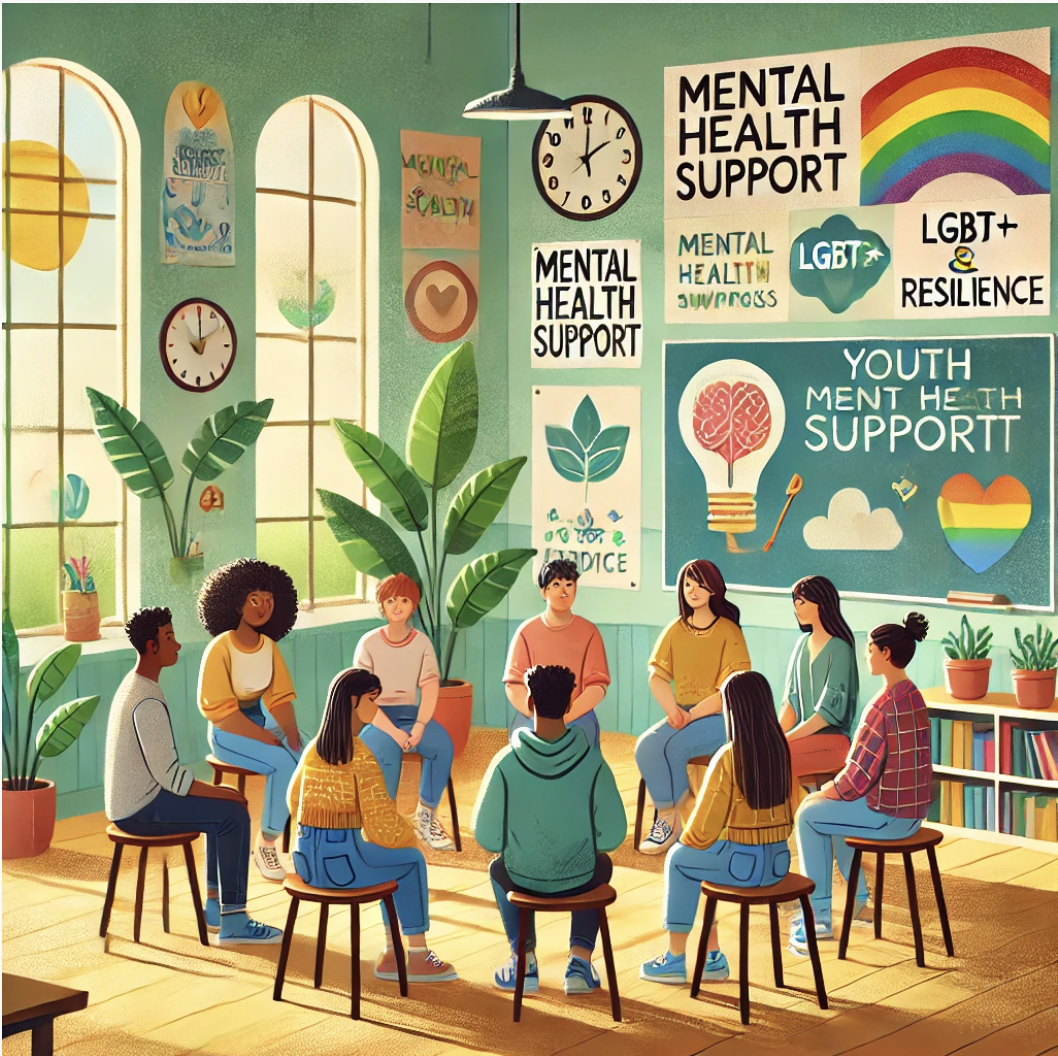How to Use Classroom Walls (EdWeek Magazine) Environment Matters! Today's scholars are bombarded by...
Prioritizing Youth Mental Health and Well-being: A Strategic Imperative for Schools, Parents, and Communities

As we reflect on the beginning of a new school year, it's vital to recognize that returning to classrooms means much more than resuming academics. It is about addressing the profound mental health challenges that today’s youth, particularly in the Greater Boston area, face. My recent appearance on GBH’s Wake Up Well with Paris Alston helped shed light on some critical issues and sparked an important conversation about the mental well-being of our students as they navigate life in a post-pandemic world.
The impact of the COVID-19 pandemic continues to be felt deeply by adolescents, many of whom are grappling with anxiety, depression, and the aftereffects of long-term isolation. The CDC’s 2021 report painted a bleak picture: over 40% of high school students reported persistent feelings of sadness or hopelessness—an alarming 10% increase from pre-pandemic levels. These numbers cannot be ignored, and they demand a strategic and empathetic response from schools, leaders, and the community at large.
The Pandemic's Lingering Effects: Where Do We Go From Here?
The pandemic disrupted the lives of our children, stripping away the structure and support systems they relied on. According to the American Psychological Association (APA), nearly 1 in 3 adolescents experienced worsening mental health conditions during the pandemic. The data reveals significant disparities among students of color, particularly Black and Latinx youth, who faced additional barriers, including limited access to mental health services.
In our schools, we must now focus on re-engaging students through culturally responsive teaching and SEL (Social Emotional Learning) initiatives. Programs such as Boston’s City Year and Cambridge’s Breakthrough Greater Boston have proven to be effective models in mentoring and academic support, helping students regain their motivation and find success in the classroom.
Social Media: A Double-Edged Sword
While social media provides platforms for connection and self-expression, it has also become a significant source of distress for many teens. APA studies from 2023 reveal a 70% increase in the risk of depression and anxiety among teenagers who use social media excessively. The pressure to conform to unrealistic standards, exposure to harmful content, and cyberbullying have left many young people feeling isolated and overwhelmed.
The risks are particularly acute for LGBTQ+ youth. The Trevor Project’s 2023 National Survey found that 45% of LGBTQ youth seriously considered attempting suicide in the past year, with even higher rates of depression and anxiety reported by transgender and nonbinary students. In Greater Boston, LGBTQ-specific resources like Fenway Health and The Boston GLASS provide safe spaces and essential support, but schools must do more to foster inclusivity and digital literacy among all students.
As I discussed on the GBH morning show, it’s time for schools to actively teach students how to navigate the digital world with awareness. Programs like Social Media Smarts can help students develop critical thinking skills when engaging online, while also empowering them to set healthy boundaries.
The Role of Media in Glorifying Violence
In recent years, we've seen an uptick in violent content across social media, television, and movies, often glorifying domestic violence and abusive relationships. This exposure, particularly to girls and LGBTQ+ youth, normalizes aggression and desensitizes young minds to the consequences of such behaviors. According to a 2022 report by the American Academy of Pediatrics, constant exposure to this type of media content leads to increased aggression and risky behaviors in teenagers.
In response, our community must come together to offer media literacy programs that help youth critically analyze the media they consume. Media Power Youth is one such New England-based organization that offers curricula designed to educate students on the ways media impacts attitudes and behaviors. Beyond the classroom, schools in Boston and Cambridge can engage parents by hosting workshops on setting healthy media boundaries at home.
Resources Available in Greater Boston
We are fortunate to live in a community rich with resources that address the mental health needs of our youth. Programs like The Home for Little Wanderers and Riverside Community Care offer crisis intervention, counseling, and school-based mental health services tailored to adolescents and their families.
For LGBTQ+ youth, specialized mental health services are available through Fenway Health and The Boston GLASS, which address unique challenges such as gender dysphoria and discrimination. Additionally, organizations like the Peace Institute work with schools to promote conflict resolution strategies and trauma-informed practices, which are especially needed in an age where youth are increasingly exposed to violence.
Empowering Schools and Leaders: A Call for Strategic Action
Schools have an essential role to play in addressing the mental health needs of our students. As I mentioned on GBH, it's imperative that we see our schools as hubs for youth well-being, where academic success is closely linked to emotional health. Educators must receive training in trauma-informed teaching, mental health first aid, and culturally responsive pedagogy. By creating student-centered programs and fostering peer support, we can reduce the stigma around mental health and provide our students with the tools they need to thrive.
Special attention must be given to creating safe and affirming spaces for students of color and LGBTQ+ youth, who often face additional stressors related to their identity. It’s time to invest in comprehensive SEL programs that not only teach students to manage their emotions but also help them build resilience and develop healthy relationships.
Call to Action: Mobilizing for the Future
Addressing youth mental health requires a collective effort. As a community, we must advocate for increased funding for mental health services in our schools and promote awareness campaigns that highlight the unique challenges faced by LGBTQ+ and BIPOC students. Parents, teachers, and community leaders must work together to ensure that every child has access to the support they need.
The mental health of our youth is a reflection of our collective investment in the future. By addressing the challenges posed by social media, the lingering effects of the pandemic, and harmful media influences, we can create a safer, healthier environment for students in Boston, Cambridge, and beyond. The time to act is now—let's ensure that every young person has the opportunity to succeed, both academically and emotionally.
#TeenMentalHealth #MentalHealthAwareness #MentalHealthInSchools #LGBTQMentalHealth #BIPOCMentalHealth
#BostonMentalHealthResources #CambridgeMentalHealth #PostPandemicMentalHealth #SocialMediaAndMentalHealth #SELInSchools #TraumaInformedTeaching #TeenDepressionAwareness
#MentalHealthSupportForTeens #StudentWellBeing #DigitalLiteracyForTeens #MediaLiteracyForYouth
#ViolencePreventionForTeens #GreaterBostonYouthSupport #EmpoweringYouth




